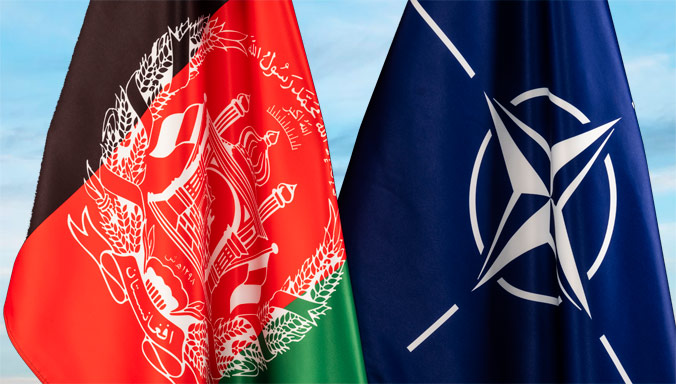The North Atlantic Treaty Organization, often known as the North Atlantic Alliance, is a military alliance comprised of 30 member states, including 28 European and 2 North American nations. The North Atlantic Alliance was established in the aftermath of World War II. Its objective was to ensure peace in Europe, promote cooperation among its members, and defend their independence in the context of opposing the Soviet Union’s threat at the time. It ties the Allies together in terms of democracy, personal freedom, the rule of law, and peaceful conflict resolution. The treaty is important because it defines the idea of collective defence, which states that an attack on one ally is treated as an attack on all allies. The North Atlantic Treaty Organization, or NATO, provides a unique arena for transatlantic dialogue and collaboration.
On September 11, 2001, four coordinated terrorist strike in the United States killing over 3,000 people. For the first time in NATO history, the Allies agreed to invoke Article 5 of the Washington Treaty. The Article states that attacking one member is attacking all.
On December 5, 2001, the Bonn Accord is signed, establishing an international peacekeeping mission to maintain stability in Afghanistan. The first contingent of ISAF peacekeepers arrives in Afghanistan in January 2002, deployed under Chapter VII of the UN Charter.
In April 2003, NATO takes command of ISAF, a 42-nation force which sought to enhance the capabilities of the Afghan national security forces, and to establish the conditions necessary for the Afghan government to exercise its authority throughout the nation. Germany and the Netherlands, then leading ISAF, requested this decision, which was unanimously supported by all nineteen NATO ambassadors. NATO seized responsibility of its first mission outside the North Atlantic on August 11.
NATO Allies invaded Afghanistan to prevent foreign terrorists from hiding there and attacking NATO members. ISAF first guarded Kabul and its surroundings from the Taliban, al Qaeda, and factional warlords. In October 2004, ISAF has completed its expansion and is covering around three quarters of Afghanistan’s territory.
A couple of months later, Osama Bin Laden takes responsibility for the 9/11 attacks and threatens the West with further attacks.On 3 April 2008, ISAF troop-contributing countries laid out a strategic vision for Afghanistan based on four principles: a firm and shared long-term commitment; support for enhanced Afghan leadership and responsibility; a comprehensive approach by the international community bringing together civilian and military efforts; and increased cooperation and engagement with Afghanistan’s neighbours, particularly Pakistan.[1]
The 2012 Chicago Conference approved a strategy to conclude the Afghanistan war and evacuate NATO-led ISAF soldiers by December 2014. By the end of 2014, The Afghan security forces have full responsibility for Afghanistan.
NATO began its Resolute Support Mission (RSM) to replace ISAF in January 2015 with the goal of educating, advising, and assisting Afghan security forces and institutions in their fight against terrorism and maintaining national security. ISAF was NATO’s longest and toughest mission and had assisted the international community in enabling the Afghan government to rule the country.
Through ISAF the Afghan National Army (ANA) evolved from an infantry force to an army with military police, intelligence, route clearing, combat support, medical, aviation, and logistics. ISAF secured governance and socioeconomic growth. Over ISAF’s decade, Afghanistan had the greatest improvement in basic health and development measures.
The Taliban quickly advanced in front of the failing Afghan Army Forces when NATO troops began to evacuate. By 15 August 2021, Taliban fighters controlled much of Afghanistan and surrounded Kabul.
After the collapse of the Afghan government and the Afghan National Defence and Security Forces in summer 2021, NATO prioritised the safe evacuation of Allied and partner soldiers and NATO-affiliated Afghans. The coalition airlifted around 120,000 people from Kabul airport in August 2021. All areas of cooperation with Afghanistan were terminated once the evacuations finished. Under the current circumstances, NATO has terminated all support to Afghanistan.
NATO politicians have called the chaotic departure of Western forces from Afghanistan and the collapse of the Afghan government the worst debacle since its founding.
Following the rapid collapse of the Afghan government and forces in August 2021, a comprehensive political and military assessment was conducted over the autumn, with the active involvement of Allies and experts.
The assessment found that NATO’s engagement in Afghanistan demonstrated immense capacity and military capabilities, and that in an increasingly complex security environment, crisis management should remain a core task for NATO. It also concluded that the international community’s level of ambition in Afghanistan extended far beyond degrading terrorist safe havens, and that in future, Allies should continuously assess strategic interests, set achievable goals and remain aware of the dangers of mission expansion. [1]
Reference:
- NATO (2021). NATO and Afghanistan. [online] NATO. Available at: https://www.nato.int/cps/en/natohq/topics_8189.htm [Accessed 1 Mar. 2023].


